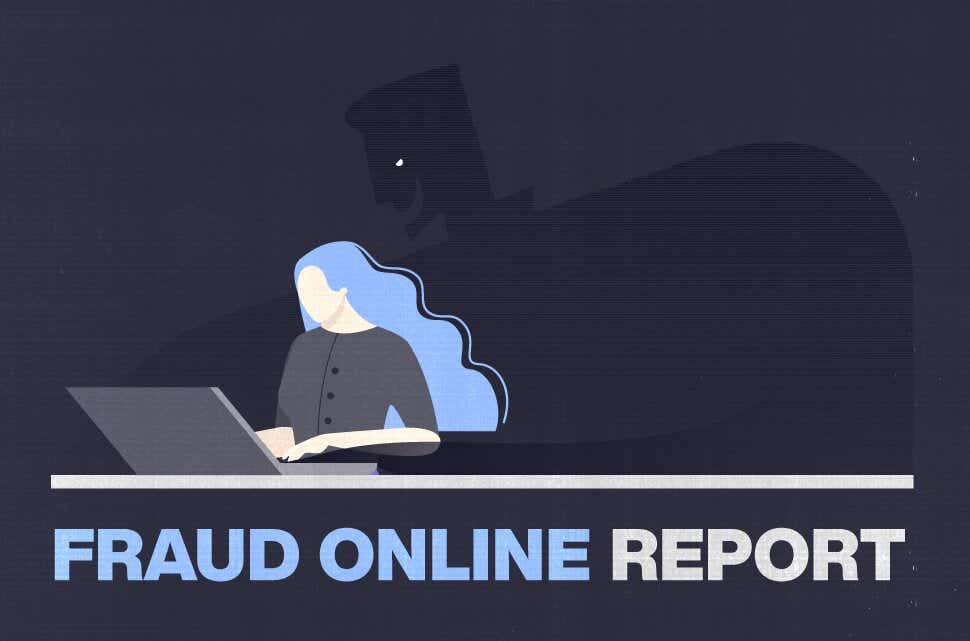In fact, there are dozens of different types of online fraud. Fraudsters have invented scams for all types of products and services, including loans, dating sites, holidays and business opportunities. Cybercrime is one of the most prevalent crimes in the country, so nowadays you’re more likely to fall victim to fraud or cyber offences than many other crimes.
Victims of fraud range across vulnerable individuals, major corporations, smaller businesses, as well as the public sector. According to the UK’s ‘Annual Fraud Indicator,’ fraud losses to the UK are estimated at around £190 billion every year.
We surveyed people across the UK to find out their views when it comes to online fraud, and found that over half of the people surveyed have suffered financial losses due to fraud. Not only that, but 45% have had their personal information stolen online, and 2 in 5 said their mental health suffered as a result of scams like this. But despite this huge impact on internet users, a further 1 in 5 said they do not think they are susceptible to online fraud.
With that in mind, we’ve taken a closer look at online fraud to reveal which European country is losing the most money, how online fraud has changed over time in the UK, as well as the different types of scams to look out for.
Which country is losing the most money?
Fraud in card transactions varies considerably across Europe. Using data from the European Central Bank we’ve taken a look at the amount of money lost (€) per 1,000 inhabitants and the number of people affected per 1,000 inhabitants in countries across Europe. The UK comes out as the hardest-hit at a value of €10,414 lost per 1,000 inhabitants.

How has internet fraud changed over time in the UK?
In the UK, fraud poses a major threat as criminals continue to adapt their attempts to steal customers’ information and money. An estimated £376.5 million of internet and e-commerce fraud took place on bank cards in the UK in 2020 alone. Using data from UK Finance ‘Fraud - The Facts 2021’ report we can reveal just how much internet fraud loss has increased in the UK since 2010.

What are the different types of scams to be aware of?
Criminals are making the most of the internet and getting more sophisticated in how they use technology, but that doesn’t mean everyone has to become a victim. By understanding how these fraudsters operate, you can avoid falling for their scams. Here are some of the most common online scams to look out for, along with how much was lost and reimbursed in the UK in 2020.

How can you stay safe from online fraud?
With people spending more time online than ever before there’s an even greater chance of falling victim to cybercrime, but following just a few simple tips can help you stay safe online. Take a look below to make sure you’re better prepared the next time a cybercriminal attempts to gain your information.
Check your social media privacy settings — You can prevent online identity fraud by making sure you have your privacy settings on your social media set appropriately. Also, make sure you never post private information online as it’s an easy way for hackers to use it to attempt to access your accounts.
Only trust encrypted websites — Encrypted websites start with "https" instead of "http". The “s” in “https” stands for “secure”. It's not a guarantee the site is safe, but it's an indicator that it's more secure.
Watch out for links and attachments from unknown sources — Be cautious with email attachments as they can be disguised as malware that will download a virus to your computer. Don’t click on links in an email that you are suspicious of, as what may look like a trustworthy hyperlink can be a disguised link to a fake website.
Turn on two-factor authentication — This is a type of security feature that requires two forms of authentication, such as your password plus a special code sent to your phone. It's an extra layer of protection in case your password is stolen.
Be careful when shopping online — Research retailers online to make sure they’re legitimate. Where possible, pay using a credit card as you will have more protection. Alternatively, use an online service like PayPal, as scammers will not be able to get hold of your bank details.
And lastly, if you suspect you've been the target of an online scam, report it to the authorities.
For more information, check out our guide on internet security and our data breach report, which provide further tips and advice to help protect you and your money from online fraud.
Your broadband provider may include security products which can help to protect you from viruses, scams and phishing attacks. It's worth checking with your provider if this is an option, you can also look to compare broadband deals available in your area.
Methodology
All data was collected from The European Central Bank and the UK Finance Fraud Report 2021.


